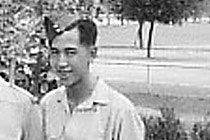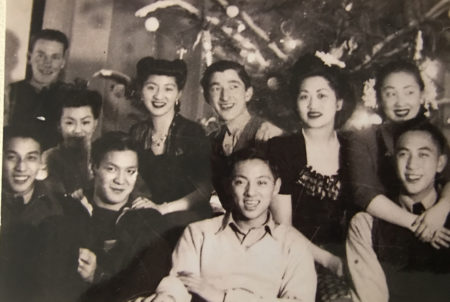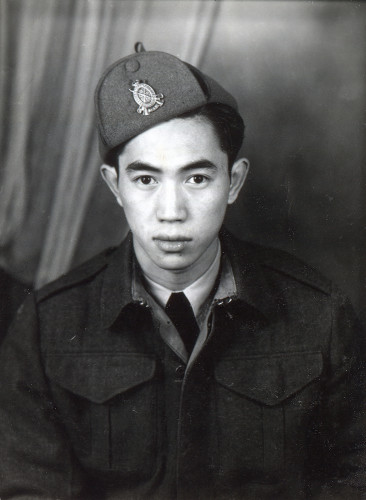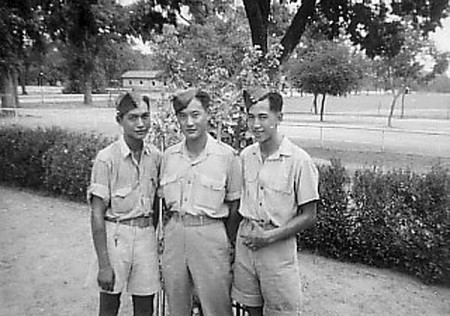
Neill Chan grew up in Vancouver’s Chinatown, a neighbourhood that, at the time, offered few opportunities for young Chinese men. Growing up in a poor family, Chan worked in lumber mills during the day to earn a wage, and in the evenings loved to visit the underground gambling clubs with his friends.
When Chan was first called up by the Canadian Army, he was sent to Maple Creek for basic training. At the end of that training, Chan was quietly approached and asked if he would be willing to serve with a unique group of commandos in Southeast Asia. It was explained that he would be seconded to British Intelligence and would serve with a secretive unit called Force 136. Chan would be trained in guerrilla warfare and jungle survival. He would then become part of small team that would be dropped behind Japanese lines. Their goal? To find and train local resistance fighters and then assist with sabotage and espionage.
Chan was young, and didn’t quite realize he was being trained to be a type of spy. He did not yet understand that the battles he would be a part of would be unconventional and extremely dangerous.
But Chan was eager to serve and eventually found himself in India learning how to parachute, how to move through the jungle with ease, and how to kill an enemy silently. With a good command of Cantonese, Chan also brushed up on his interpretation skills.
One day a group of men approached asking for an “interpreter” to come along for an operation into Japanese-occupied Burma. A little bored and wanting to see more of Asia, Chan eagerly put up his hand and offered his services. It was to be a memorable trip.
“I was travelling in a jeep on the Burma Road. I was the interpreter and was riding with the scout, so we were ahead of the main group,” Chan recalled years later.
“As we drove, I saw bodies alongside the road. They had been decapitated. I wasn’t nervous at the start of that jeep ride. But boy, by the end of that trip, I was very scared.”
Back at the camp in India, Chan asked if he could change his expertise. Chan decided he did not want to be an interpreter any more. He changed to specialize as a wireless operator.
Fortunately for Chan, he did not have to go on another mission before the war in the Pacific was over. However, even into his 90s he still had dreams about the experience, particularly the sounds and smells of artillery training.
“I remember one of my friends was shot in the buttocks during practice. That memory has also stayed with me,” Chan recalls with a grin.
Chan become was on the first executive board of the Chinese Canadian Military Museum.
Listen to Neill’s August, 2015 interview with CBC Radio‘s Elaine Chau.

Christmas 1945. Neill is front row, far right. His girlfriend Mabel Wong, later became his wife.

